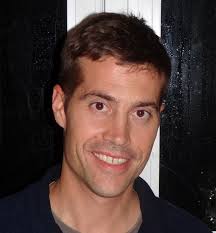There are times when one wonders why any sane person would want to be the leader of a nation committed to democratic values. Last week was one such time as western leaders struggled to navigate their way through at least a trio of crises.
One, of course, was the confrontation with the fanatics of the Islamic State in Iraq and Syria, known as ISIS, who are waging war in their own repugnant way — by beheading their captives and doing it on video for the world to see. On Saturday, British aid worker David Haines became the third victim in recent weeks, following the murders of American journalists James Foley and Steven Sotloff. “An act of pure evil,” British Prime Minister David Cameron called the Haines assassination.
There will be more beheadings — ISIS has already served notice of that — leaving world leaders appearing impotent as they confront an enemy that does not observe any acknowledged practices of warfare. ISIS does not negotiate, although it will accept blood money, as it did when the weak-kneed government of France paid to ransom French captives. It does not hesitate to kill its victims, fellow Muslims as well as foreign “infidels,” in the most gruesome manner possible. It does not care what damage it does to the Islamic movement in the world.
It does not worry about retaliation from horrified western leaders. It knows western intelligence gathering is weak, probably as weak as it was back in 2003 when George W. Bush led the United States into war against Saddam Hussein on the strength of erroneous intelligence about weapons of mass destruction in Iraq. ISIS even welcomes retaliation, because for those twisted fanatics retaliation serves to validate their cause and to attract recruit disaffected and misguided youths in the U.S., Britain and Canada, too, to join their struggle.
Of course, ISIS can be stopped. According to western estimates — which may or may not be accurate — there are only about 30,000 ISIS militants in ISIS. That doesn’t seem like very many for the combined forces of the western allies and sympathetic Arab countries to dispose of. But the movement feeds on publicity and its numbers are growing. They are not soldiers. They are terrorists who are fighting on their own territory with the support and protection of the Sunni population.
They cannot be bombed out of existence without causing incalculable civilian casualties. The only way, as President Barack Obama and other leaders must surely suspect, is with boots on the ground, by sending in soldiers in overwhelming numbers to capture or kill the terrorists. But no one wants another Iraq war. Everyone knows it could drag on for years, as Iraq and Afghanistan did, and might, in the end, solve nothing. And there’s a real risk that ISIS, following the example of Al-Qaeda, would export its murderous ways to the civilian populations in other parts of the world, including Canada.
As if ISIS were not enough crisis enough, political leaders have to deal with two others. One is the ebola epidemic or pandemic sweeping through several countries in West Africa. There are not enough doctors, nurses, hospitals and medical supplies to contain the virus, let alone the vaccines to eradicate it. Eighty per cent of the people who contract ebola die from it. Unless it can be stopped, it seems inevitable that it will be carried one way or another to Europe and North America.
The third crisis is posed by Vladimir Putin who seems intent on rebuilding the old Soviet empire, starting with Ukraine. NATO countries will try sanctions and threats, but in the end the world might be looking at another Cold War arms race.
Of all leaders, Britain’s David Cameron has the most worries. His biggest one is this week’s referendum on independence for Scotland. If he loses, which is a distinct possibility, his coalition government may not be around long enough to have to worry about ISIS, ebola or Putin.
Cambridge resident Geoffrey Stevens, an author and former Ottawa columnist and managing editor of the Globe and Mail, teaches political science at Wilfrid Laurier University and the University of Guelph. His column appears on Mondays in Waterloo Region Record and Guelph Mercury. He welcomes comments at geoffstevens[at]sympatico.ca




